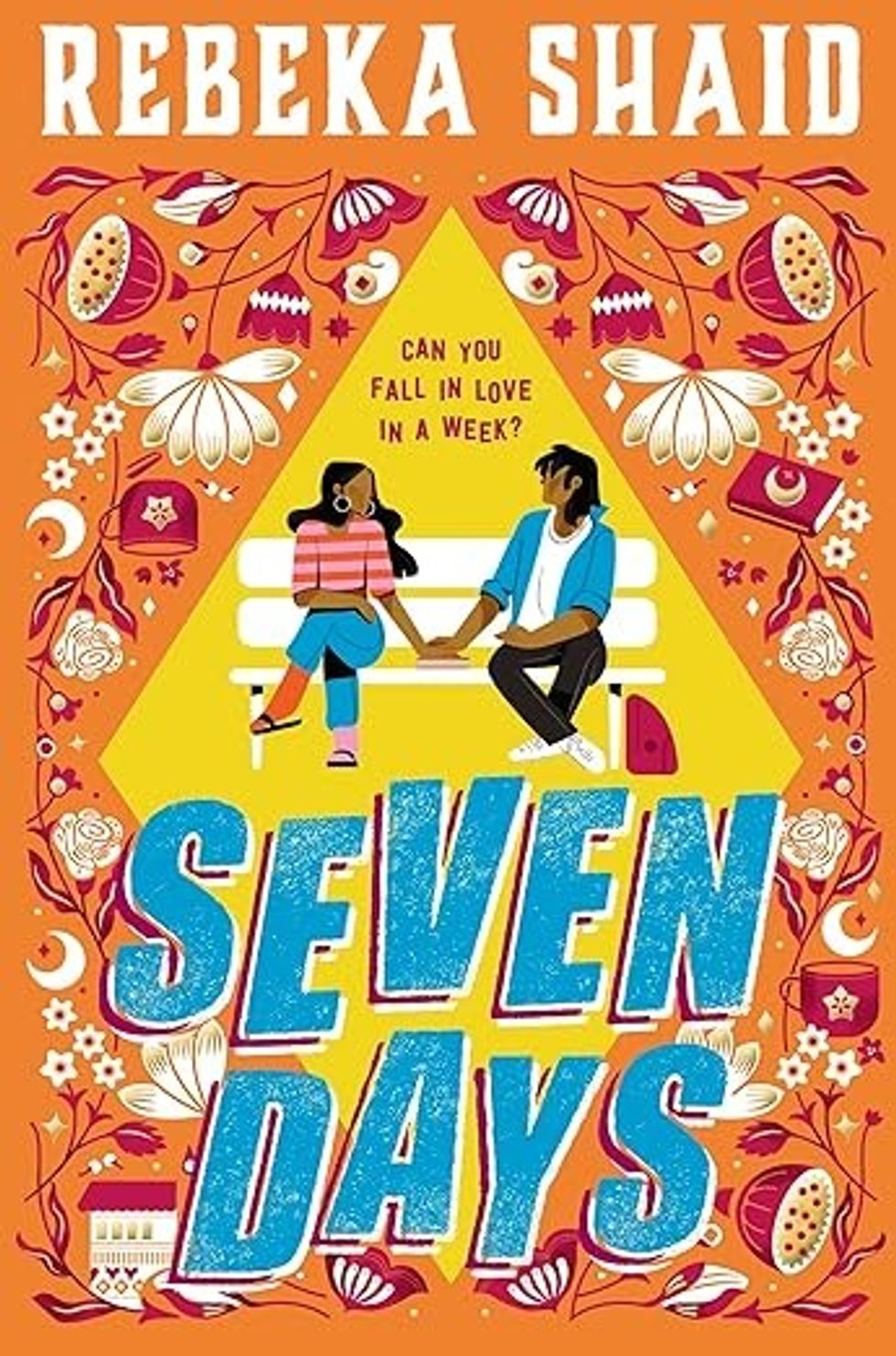REBEKA SHAID used personal experiences for her powerful new novel Seven Days.
She drew upon memories of living in Bristol, her own mixed heritage, having immigrant parents and the grief of losing a loved one, for the story of two teenagers who bond across a week.
The young adult (YA) romance addressing multiple issues of grief, faith, family, belonging and identity revolves around two individuals, who struggle to carve out their own paths after losing a loved one. By putting her own experiences into lead characters Noori and Aamir, she has created a relatable book filled with important life lessons.
Eastern Eye caught up with the talented writer to discuss her multi-layered new book.
She also spoke about her experience of becoming a young widow after losing her husband to cancer, shortly after the birth of their first child.
What connected you to writing?
For me, it all started with being an avid reader as a child. I read anything I could get my hands on. There is something magical about diving into a book and getting lost in a story that can transport you to a different age or place and connect with characters you end up getting attached to.
Books have that transformative power to shape and enrich our lives. I was always drawn to the world of literature because it’s a source of imagination and, ultimately, a reflection of life. The written word, I realised early on, is a powerful thing.
What inspired you to write Seven Days?
I wanted to write a novel that my teenage self could connect with because when I was growing up, there weren’t that many diverse books out there.
I’m of mixed heritage, my parents are immigrants from different faiths, and as a teenager, I often felt different.
This sense of ‘otherness’ has accompanied me for most of my life, and with Seven Days I wanted to create relatable characters that readers from a variety of cultural backgrounds can identify with. Representation does matter.
Can you elaborate on that point?
It makes people feel seen, especially those who are often marginalised. And at the same time, diverse literature helps to broaden people’s understanding of other cultures and that’s really important in today’s world – learning to be more accepting and open to others.

Tell us a little bit about the story.
Seven Days is a contemporary YA romance about finding love after loss.
The story follows two teenagers, sassy Noori and her troubled counterpart Aamir. Their lives collide in unexpected ways, or maybe it’s kismet, and over the course of seven days they bond over chai, roti and Rumi.
While Seven Days is a tale about a girl who meets a boy, the novel also looks at other themes such as grief and family relationships. It addresses questions of faith and identity, all told with humour.
What was the biggest challenge you faced while writing this book?
I’m an expert at procrastination. Sticking to a writing routine without getting distracted was my biggest hurdle.
Who is your ideal reader for this book?
I hope the book appeals to a broad range of readers – those who are on a journey of finding themselves, much like Noori and Aamir, but also anyone who has experienced loss of some sort. In the end, it’s a fun and uplifting story, so readers who are looking for hope, and even miracles, will find that in Seven Days.
What is your favourite part of the book?
It’s difficult to pick a favourite scene. But, I liked writing the last chapter and jotting down the words ‘The End’ made me feel like I had accomplished something. So, writing that final chapter felt special because it was like reaching the finishing line after running a joyful, but at times, excruciating marathon.
Did writing this book help you in any way?
Writing in general is helpful to extract your emotions and perspectives. It’s a tool for communication and allows you to express yourself, your thoughts and creativity. It’s no exaggeration when I say that writing helped me heal and process what I was going through.
This book deals with grief. How did you deal with the heartbreak of becoming a widow in your 20s after losing your husband?
It was a traumatising time and when I think back it all feels like a blur. But I had a two-year-old to look after, so I just functioned.
I took each day as it came and did a lot of soulsearching, trying to get back on my feet and figuring out who I am and want to be. I read a lot, went on daily walks, and in the end turned to writing.
What advice would you give those dealing with grief and heartbreak?
Healing takes time, so be gentle on yourself. While life will never be the same and you will always miss the person you’ve lost, eventually your days will brighten, bit by bit. Also, if you need help, don’t be afraid to ask for support.
There’s this Rumi quote I like as it sums up the journey through grief perfectly. ‘Know that one day your pain will become your cure.’
What books do you enjoy reading?
I love many genres, but am, of course, drawn to YA novels. Authors I admire include Nicola Yoon, Jandy Nelson, Angie Thomas, Elizabeth Acevedo, and Jasmine Warga – to name a few. I also like to explore new, up-and-coming voices as well as literary gems like Elif Shafak and Isabel Allende.
What inspires you?
I think we all draw inspiration from our daily lives, the people we encounter, and experiences we make. With Seven Days specifically, I wanted to write about two characters who are figuring out where they belong, while exploring their relationships with each other and their families. Both Noori and Aamir feel this sense of ‘otherness’ and that’s something I wanted to unpack in an unconventional love story.
Why should we all pick up your new book?
If you’re looking for a funny, romantic coming-ofage story that tackles topics like identity, loss and family relationships, then Seven Days is certainly for you. It will leave you with a sense of warmth and wonder. Is this a convincing pitch?




